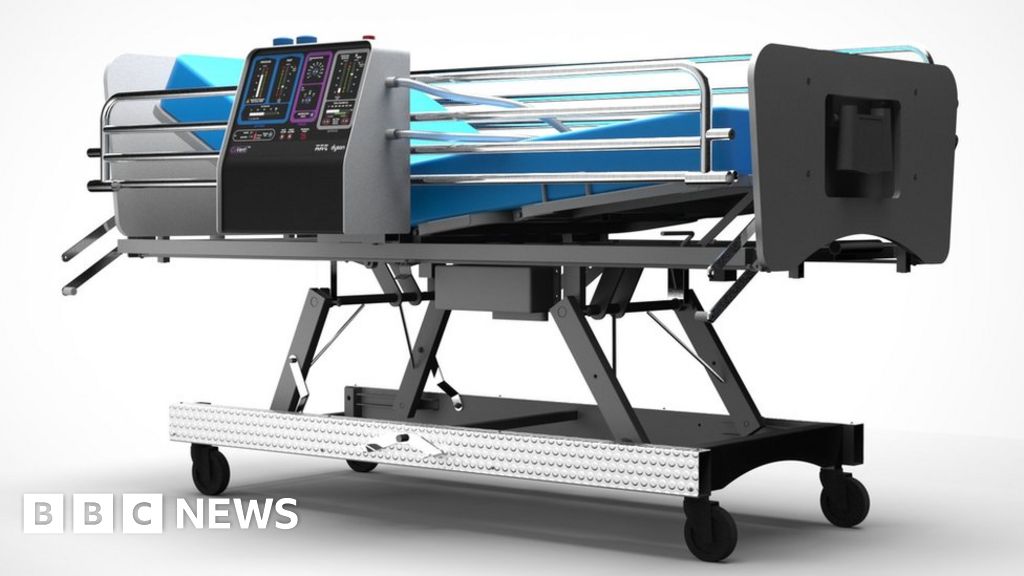Coronavirus: Government Orders 10,000 Ventilators From Dyson

 Image copyright
Dyson/PA Media
Image copyright
Dyson/PA Media
The government has ordered 10,000 ventilators from Dyson to help deal with the coronavirus crisis.
The firm, headed by British inventor Sir James Dyson, said it had designed a new type of ventilator in response to a call on behalf of the NHS.
The order is still subject to the devices passing stringent medical tests but that is expected to happen quickly.
Dyson has had hundreds of engineers working round the clock to design the ventilators from scratch.
Blitz spirit
It hopes to build the ventilators at scale from its UK base in Wiltshire - using aircraft hangars that were used to stuff parachutes in the World War Two.
However, the blitz spirit the company is keen to channel will not produce immediate results.
It is thought that even if regulatory approval is forthcoming, it could take a couple of weeks to move from prototype to the device being made in significant scale.
What is a ventilator?
- A ventilator is a machine that helps a person breathe by getting oxygen into the lungs and removing carbon dioxide
- Ventilators can be used to help a person breathe if they have lung disease or another condition that makes breathing difficult. They can also be used during and post-surgery
- A tube, connected to a ventilator machine, is placed in a person's mouth, nose or through a small cut in the throat (called a tracheostomy)
Dyson - which is working with The Technology Partnership, a medical company based in Cambridge - is not the only game in town.
In the meantime, the government has told the BBC that is "picking the low-hanging fruit" by buying as many existing models as it can.
Currently, the NHS has just over 8,000 ventilators, the government thinks it can procure a further 8,000 from existing domestic and international suppliers.
However, it estimates that the NHS will need at least 30,000 to deal with the potential flood of virus victims.
By way of comparison, the state of New York has targeted the same number of 30,000 required ventilators, even though it has a population one third the size of the UK's.
The race has been on for weeks to produce tens of thousands of ventilators to keep people with Coronavirus-related breathing difficulties alive.
In one corner is vacuum and hairdryer maker, Dyson.
In another is a consortium of manufacturing companies including Airbus and GKN, which makes parts for cars and planes.
The approaches of these two groups are very different.
Dyson insiders have told the BBC they have a working prototype, designed and built from scratch, which has been tested on humans and is "ready to go".
Meanwhile, the consortium of medical, military and civil engineering companies - which includes Airbus, Meggit, GKN and others - is working to ramp up the production of an existing design.
Usually, these processes would take months or even years.
It is a measure of the current emergency that the decision making process has been reduced to days.
From Chip War To Cloud War: The Next Frontier In Global Tech Competition
The global chip war, characterized by intense competition among nations and corporations for supremacy in semiconductor ... Read more
The High Stakes Of Tech Regulation: Security Risks And Market Dynamics
The influence of tech giants in the global economy continues to grow, raising crucial questions about how to balance sec... Read more
The Tyranny Of Instagram Interiors: Why It's Time To Break Free From Algorithm-Driven Aesthetics
Instagram has become a dominant force in shaping interior design trends, offering a seemingly endless stream of inspirat... Read more
The Data Crunch In AI: Strategies For Sustainability
Exploring solutions to the imminent exhaustion of internet data for AI training.As the artificial intelligence (AI) indu... Read more
Google Abandons Four-Year Effort To Remove Cookies From Chrome Browser
After four years of dedicated effort, Google has decided to abandon its plan to remove third-party cookies from its Chro... Read more
LinkedIn Embraces AI And Gamification To Drive User Engagement And Revenue
In an effort to tackle slowing revenue growth and enhance user engagement, LinkedIn is turning to artificial intelligenc... Read more

